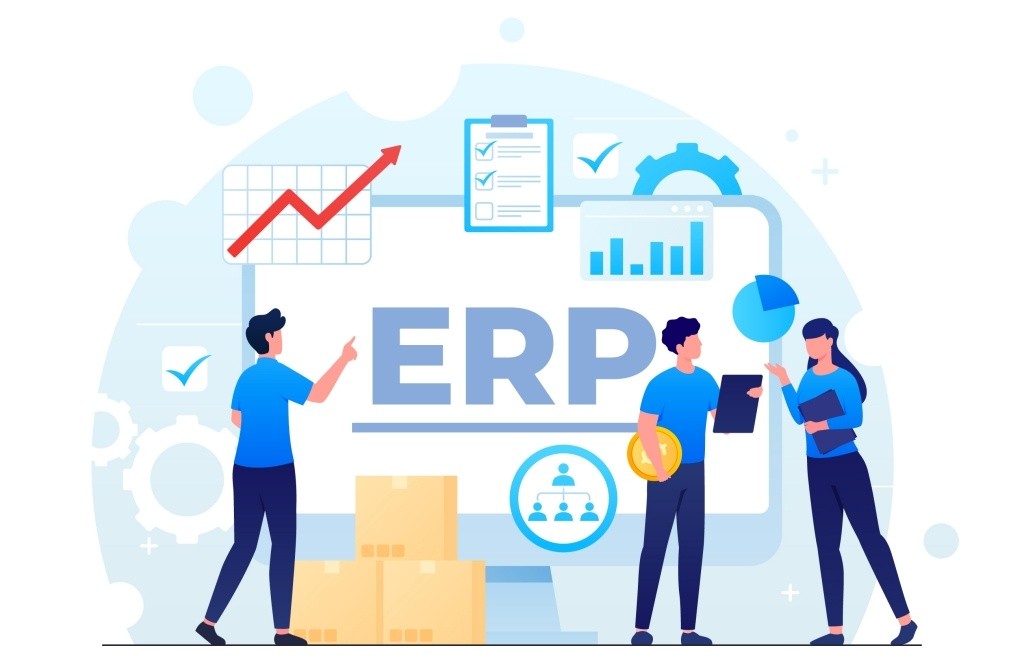How ERP Systems Improve A Retail Business
Author: Celia| Keywords chosen by Celia
To succeed in the increasingly competitive business environment, retailers need to put systems in place that allow them to streamline their processes, promote efficiency, and foster customer relationships.
ERP systems make a retail business process more organized, improve its overall productivity, and enhance customer satisfaction.

What is ERP
Enterprise resource planning (ERP) is a type of business management tool to understand and manage all the day-to-day resources needed to operate a successful business.
ERP allows a business to collect, store, interpret and manage data from different places and activities in a single place.

ERP benefits
1. To financial management
1.1 Shared database for financial data
ERP systems have a shared database for all financial data, which greatly helps report static and ad hoc reports requested by headquarters.
It also means users can make faster, data-supported decisions, without the need for IT or finance teams.
1.2 Effective financial close
The finance department typically accounts for all income and expenses to close the books at the end of each month, quarter, or year, which requires lots of manual work.
With an ERP system, many of those tasks will be conducted automatically, resulting in an effective financial close.

2. To customer management
2.1 Collect customer details
ERP systems also allow businesses to collect customer details to form a centralized database that contains customer information, interactions, and more.
This means users are able to categorize the customers and opportunities, generate valuable analytics, and gather details about their product and service demands.
2.2 Create customer snapshots
To serve and retain customers, one of the best ways is to know them better. ERP systems are helpful to draw information from sales to buying habits, giving users a complete view of customers.
By doing so, users can identify valuable customers, maintain customer satisfaction, maximize sales, and cut down inventory carrying costs.
2.3 Access to real-time customer information
ERP systems give users real-time information so that they can achieve a smooth and quick deal with returns and grievances.
By real-time data, users can also provide better service and retain existing customers while connecting with new ones.

3. To supplier management
3.1 Create supplier relationship
Using ERP for inventory control gives users better lead times, more intuitive communications with suppliers, and more reliable predictive analytics, helping create supplier relationships by improving resource planning.
3.2 Provide shared supply data
By providing users with shared supply data, ERP systems help improve supply arrangements.
In this way, users can provide a quicker response to suppliers and monitor performance effectively.
3.3 Improve management of sales & purchase
ERP systems can be used to manage the sales and purchase process from beginning to end, adding value to supplier relationships and encouraging a better understanding of both parties’ business needs.
Supplier details such as payment terms, lead times, product prices and more can be viewed quickly to make the ordering process and communication effective.

 XIMIVOGUE Spring Bracelets That Breathe New Life
XIMIVOGUE Spring Bracelets That Breathe New Life
 XIMIVOGUE Announces New Partnership in Libya
XIMIVOGUE Announces New Partnership in Libya
 Carry Your Fresh Start with These 6 XIMIVOGUE Lunch Bags
Carry Your Fresh Start with These 6 XIMIVOGUE Lunch Bags
 Upgrade Your New Year Style with XIMIVOGUE Claw Clips
Upgrade Your New Year Style with XIMIVOGUE Claw Clips
 Top 6 Greeting Cards You Need in Your XIMIVOGUE Basket This Year
Top 6 Greeting Cards You Need in Your XIMIVOGUE Basket This Year




